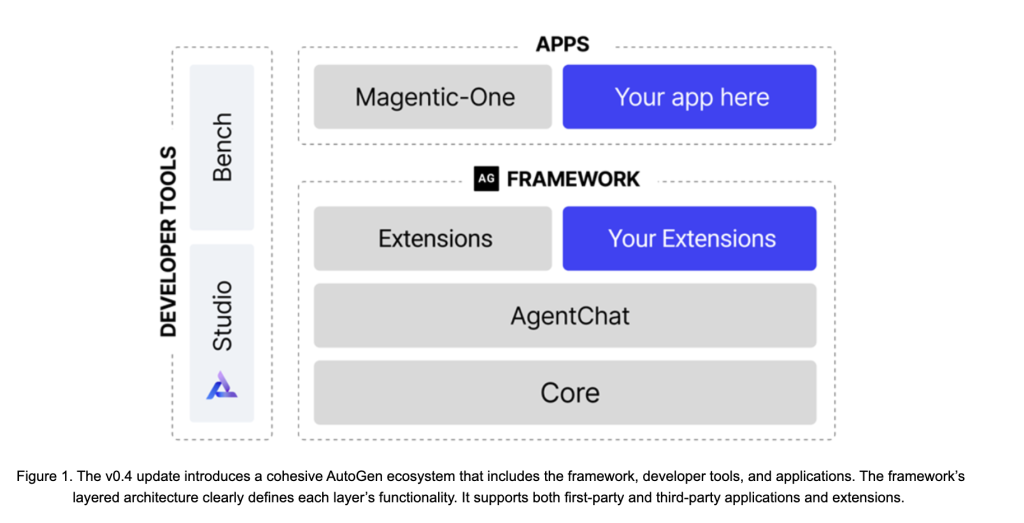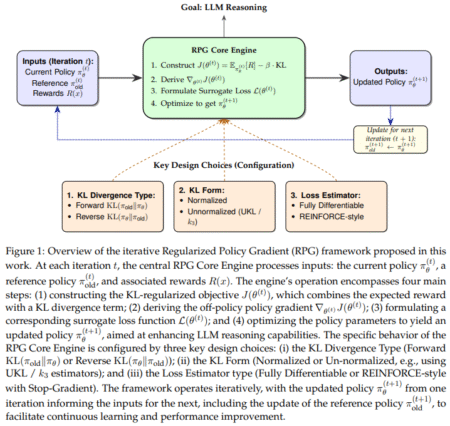

Agentic AI enables autonomous and collaborative problem-solving that mimics human cognition. By facilitating multi-agent cooperation with real-time communication, it holds promise across diverse industries, from autonomous transportation to adaptive healthcare. However, achieving this potential requires scalable, robust, and seamlessly integrative frameworks with existing technologies while addressing technical challenges that limit adaptability and precision.
The significant challenge lies in the lack of architectural flexibility in early frameworks. These systems often relied on rigid designs that hindered seamless agent communication and lacked adequate debugging tools, making them unsuitable for large-scale deployments. Another limitation was the absence of robust observability and control mechanisms essential for tracking performance, debugging interactions, and managing deviations effectively.
Although existing tools have enabled basic multi-agent workflows, their technological limitations reduce efficiency. Inefficiencies in handling agent communications, increased latency, and the lack of asynchronous operations have hindered real-time applications in environments where rapid response times are critical. Frameworks tailored to specific programming environments have also limited their utility for diverse development teams.
Microsoft researchers introduced AutoGen v0.4, a comprehensive update to their agentic AI framework. This release features a complete redesign to enhance scalability, robustness, and extensibility. The framework incorporates an asynchronous, event-driven architecture, enabling flexible communication patterns and efficient operation in distributed environments. Modular and extensible components allow developers to create proactive, long-running agents that adapt to evolving task requirements with minimal overhead.
The key improvements introduced in AutoGen v0.4 compared to its previous versions:
- Asynchronous Messaging: An event-driven architecture that enhances communication efficiency and flexibility.
- Enhanced Observability: Integrated OpenTelemetry tools for precise monitoring, debugging, and performance tracking.
- Modular Design: Plug-and-play functionality for custom agents, tools, and models, offering extensive customization.
- Improved Scalability: Distributed agent networks enable seamless large-scale deployment across organizational boundaries.
- Cross-Language Support: Interoperability between Python and .NET, with plans for additional languages.
- Advanced Debugging Tools: Message tracing and mid-execution control reduced debugging time by 40%.
- AutoGen Studio: A low-code platform with real-time updates, drag-and-drop team building, and visual communication management.
- Proactive Agents: Event-driven patterns support long-duration tasks without performance loss.
- Magentic-One: A versatile multi-agent system for solving complex and open-ended tasks.
The framework’s layered architecture comprises three main components:
- The core layer
- The AgentChat API
- The extensions module
The core layer provides foundational event-driven functionalities, while the AgentChat API adds task-oriented features such as group chats, pre-built agents, and real-time code execution. This API ensures easy migration from earlier versions by maintaining familiar abstractions alongside new capabilities. The extensions module enhances adaptability by integrating tools like the Azure code executor and OpenAI model client. With Python and .NET support, cross-language interoperability further broadens the framework’s utility with more languages in development.
AutoGen v0.4 reduced message latency by 30%, improving task execution efficiency. Debugging tools with OpenTelemetry integration allowed developers to resolve issues 40% faster. The framework also enabled scalable, distributed agent networks, overcoming limitations in prior versions. Modular components reduced system downtime by 25%, simplifying the integration of custom extensions.
A key feature of AutoGen v0.4 is its focus on usability. AutoGen Studio, a low-code platform, supports rapid prototyping with real-time agent updates, mid-execution control, and an intuitive visual interface. Its drag-and-drop team builder streamlines the creation of complex agent networks. Magentic-One, a versatile multi-agent application, further highlights the framework’s adaptability by enabling solutions for open-ended tasks across diverse domains.
In conclusion, AutoGen v0.4 addresses critical challenges such as scalability, debugging efficiency, and developer usability compared to the previous version. The framework’s innovative features, such as asynchronous messaging and cross-language support, highlight its potential to drive real-world applications across diverse industries.
Check out the Details and GitHub Page. All credit for this research goes to the researchers of this project. Also, don’t forget to follow us on Twitter and join our Telegram Channel and LinkedIn Group. Don’t Forget to join our 65k+ ML SubReddit.
 Recommend Open-Source Platform: Parlant is a framework that transforms how AI agents make decisions in customer-facing scenarios. (Promoted)
Recommend Open-Source Platform: Parlant is a framework that transforms how AI agents make decisions in customer-facing scenarios. (Promoted)
The post Microsoft AI Releases AutoGen v0.4: A Comprehensive Update to Enable High-Performance Agentic AI through Asynchronous Messaging and Modular Design appeared first on MarkTechPost.
Source: Read MoreÂ




